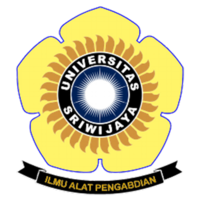Efektivitas Beberapa Metode Sterilisasi terhadap Tingkat Kontaminasi Eksplan Tulang Daun Duku pada Kultur In-Vitro
Abstract
Inaya, R., Irmawati, I., Susilawati, S., Helen, H., Herlin, W., & Negara, Z. P. (2024). The effect of different sterilization techniques on the contamination levels of duku leaf midrib explant in In-Vitro Culture. In: Herlinda S et al. (Eds.), Prosiding Seminar Nasional Lahan Suboptimal ke-12 Tahun 2024, Palembang 21 Oktober 2024. (pp. 667–678). Palembang: Penerbit & Percetakan Universitas Sriwijaya (UNSRI).
The Duku plant (Lansium domesticum) is one of the popular tropical fruit in indonesia. Using the idea of plant cells' totipotency, tissue culture is an alternate method for a quick and massive propagation of high-quality duku plant seedlings. This research was aimed to evaluate different sterilization materials and procedures on duku leaf midrib explants through tissue culture. The research was conducted from June to September 2024 at Tissue Culture Laboratory, Department of Agronomy, Universitas Sriwijaya (2°59’23.4”S 104°43’53.4”E). A combination of sterilizing substances, including 70% alcohol, fungicide, bactericide, liquid detergent, and NaOCl, were utilized in this sterilization procedures. The percentage of live explants, browning explants, and explants infected with bacteria or fungi then were calculated using parametric descriptive analysis. The results showed that the P3 treatment's sterilant combination liquid detergent for 3 minutes, 0.2% of fungicide and bactericide for 10 minutes, 1% NaOCl for 15 minutes, and 70% alcohol for 5 minute produced the highest percentage of live explants (46%) with a relatively low percentage of contaminated explants (30%) and the lowest percentage of browning explants (23%). Thus P3 treatment was concluded as the best treatment to reduce the contamination level and browning of duku leaf midrib explant.
Keywords
Full Text:
PDFArticle Metrics
Abstract view : 340 timesPDF - 791 times
Refbacks
- There are currently no refbacks.

